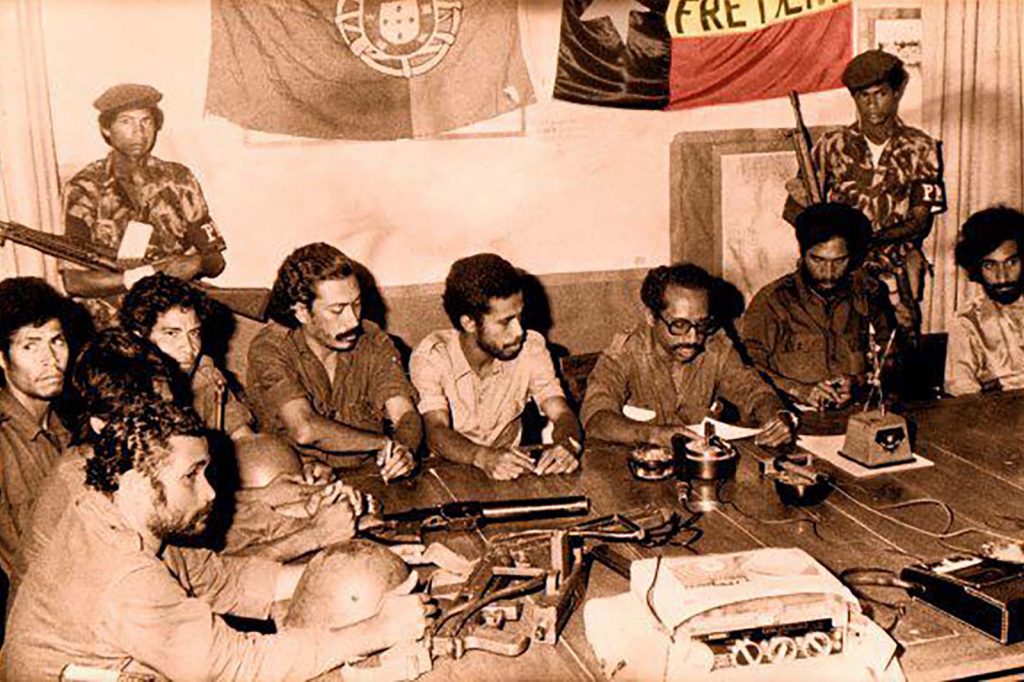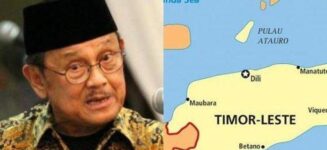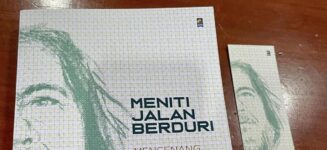Indonesia may have colonized East Timor for decades, but the names we are most familiar with -– strangely, perhaps — number just two: Key Rala ‘Xanana’ Gusmao, the charismatic former guerilla leader, now Prime Minister, and Jose Manuel Ramos-Horta, the resistance diplomat, now President of his country. The first spent most of his struggle in the mountain and the second jet-setting around the world.
Meanwhile we have for long time ignored the man who was the founder of the historic Democratic Republic of Timor Leste (RDTL) despite the fact that he spent considerable part of his life in Indonesia: Francisco Xavier do Amaral.
Xavier do Amaral died in Dili on March 6, 2012, aged 74, because of cancer. He was an amiable man, a fighter, tough politician, and statesman all rolled into one. I met him in Jakarta in 1995, 1998 and in Dili in 2009. His story, life and struggle though was heroic, ironic and tragic.
It’s heroic, because it was his political party, the social democratic ASDT, founded by himself, Ramos-Horta and Nicolau do Reis Lobato, which laid the foundation of the RDTL and the liberation movement Fretilin.
It’s ironic, because Amaral proclaimed the independence in the late-1975, only to serve as head of state for ten days. He never won the presidential elections in independent Timor Leste (2002 & 2007).
Above all, it’s tragic because shortly after proclaiming his country’s independence, Amaral became a war prisoner-turned-house detainee for some twenty years in Jakarta (1978-2000). And, as he went home in the early-2000, it was far from obvious whether he would be recognized and welcomed as a founding father.
Nonetheless, Xavier do Amaral was a great patriot who played an important role for his nation. Even during his exile, being the primus inter pares, he performed a fatherly role as protector of the East Timorese community in Jakarta.
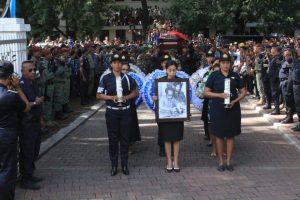
In any case, the Timor Leste government has decided to officially acknowledge his dedication and service. He will be buried at the Metinaro Hero Cemetery and the nation will mourn for three days.
“I was never in doubt, but I kept my eyes looking toward the sea and my ears toward the air (because) who know, the Indonesian army might came and attack us,” Amaral toldRadio Netherlands in 1995 as he described the moments on November 28, 1975 at 10 pm, when he read the text of the proclamation of the RDTL.
By then, Fretilin knew Indonesia would sooner or later take over the country. But its unilateral independence declaration came as a great shock for Jakarta. It forced the Army’s intelligence unit Opsus in Bali to hastily prepare a pro-integration declaration and the generals to proceed with an invasion as soon as the visiting US President Gerard Ford and Foreign Minister Henry Kissinger left Jakarta on December 7, 1975.
From his village in Same, Amaral saw hundreds of parachutes of the Indonesian Army dropping down and he joined the guerrilla and with common people fled to the mountain. By the late 1970s Indonesia’s infamous encircling and annihilation campaign had taken hundreds thousands of lives, creating a devil dilemma for the resistance of whether the people should stay with the guerrilla, or descend to towns to survive.
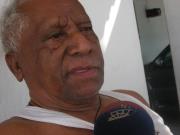
Amaral told me in 2009, because he opted for the latter strategy, he was imprisoned and abandoned by Fretilin’s “Maoist hardliners”. Starving of hunger, in 1978 he was caught by Col. Dading Kalbuadi-led Battalion 748. He thus never surrendered, but was taken as a war prisoner to Cijantung, Jakarta. “I had to work at Dading’s house to take care of horses and garden,” he told me in 2009.
It must have been a painful sacrifice that took a spiritual strength for a resistance leader, historic proclaimer and would-be president to suffer humiliation by the invading army. But Amaral insisted he was “treated well” and thanked Dading who “respected me as a hero”.In his house nearby Dading’s, he put a big picture of Dading dressed in RPKAD (elite special corps) uniform
Living in exile, Amaral had to live as happy as he could. By 1993, he actually planned to ask asylum in the U.K. but for unclear reasons he canceled it. Later he was intimidated by the intelligence as he was about to vote at August 1999 plebiscite in a cathedral in Jakarta.
Xavier Amaral’s fate may thus be viewed as a personified symbol illustrating the way the Indonesian state, in particular then military powerholders, badly behaved and treated their colony and its resistance leader.
Amaral was generally also a good source as he knew about cases of atrocities within the guerrilla movement as well as brutalities of the occupying army. He quickly heard about the Balibo killings when it happened. And, when I met him in September 2009, he doubted whether it was Captain Prabowo Subianto’s unit that caught and killed Timor Leste’s national hero, Nicolau Lobato. In his view, based on the local militia’s info, it was Captain Yunus Yosfiah’s unit that did it since Prabowo by then did not have militia at his disposal.
At home, Amaral was respectfully greeted as ‘Avo (Grandpa) Xavier’. Despite trouble with the Fretilin party when it reluctantly acknowledged him as RDTL founder, he remained respectful for the movement’s historic role. A statesman, he also helped building democracy by voluntarily joining the presidential elections although he knew he would not be able to defeat his popular rival, Xanana Gusmao.
Francisco Xavier do Amaral never remarried after divorce in the early-1970s. He left loyal supporters in Dili and in his home district.
